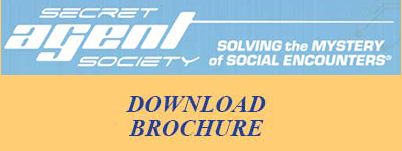Our Services
What We Offer
All of our services and programs are supervised by BCBA/R.B.A. (Ont.) and are eligible expenses for Core Clinical Service/OAP funding.
Individualized 1:1 Programming
Each child’s program is designed to meet their specific needs. Assessments are conducted to determine a child’s strengths and the areas in need of strengthening, which helps develop the child’s program goals. Parent goals are also a fundamental component of a child’s program. We teach skills from a variety of developmental domains, such as language and communication, life and self-help skills, social skills, and play and leisure skills. Depending on the child’s age and abilities, their program may also include teaching academic skills and improving conversational skills and more complex social skills. Goals are taught using teaching techniques based on ABA principles, with an emphasis on reinforcement. Program data are recorded daily and frequently monitored to ensure gains are being achieved. A child’s program may also include protocols to target challenging behaviour when applicable.
Small Group Programs
Secret Agent Society®: an award-winning, evidence-based small group program for ages 8-12. It is a spy-themed program that engages students through game-based learning and includes generalization of the skills to home and school. Students join in regular club meetings with trained SAS Facilitators, where they learn tools to build their social-emotional resilience. Together with missions at home, school, and in club meetings, students learn four life skills:
⦁ Emotion recognition in themselves and others
⦁ Emotion regulation
⦁ Problem-solving in social-emotional situations
⦁ Social skills for friendship, teamwork, and interacting with others
This program uses a specially designed online platform and includes nine child club meetings (in person), ten parent meetings (virtual), and two follow-up booster sessions.
Skills Squad: a 10-week after-school program for children ages 9-14. Goals include practicing social skills, problem-solving skills, classroom skills, strengthening executive functioning, and using ice-breaker challenges, group games, escape rooms, and team-building projects.
Classroom and Social Skills (CASS) Program: This program runs on Tuesday and Thursday afternoons for children ages 9-14 and is designed to target social skills and classroom goals in a structured small-group format. Goals include building friendships and practicing teamwork, following curriculum-based teacher-led lessons, practicing skills to use in social-emotional situations, and strengthening time management and organization skills. This program also includes time for 1:1 instruction to practice individualized goals specific to each student.
Embedded Group Programming: for students receiving 1:1 intervention, opportunities to develop their classroom and social skills in a small-group format are embedded throughout their sessions when clinically appropriate.
Examples of these opportunities include:
⦁ Participating in teacher-led lessons to practice attending and following auditory instructions.
⦁ Joining a peer to practice mutual play goals such as turn-taking, engaging in joint play, and learning to play a board game.
⦁ Primary Circle: provides opportunities for our younger learners to practice essential skills that are required in a classroom, such as sitting appropriately in a group and attending to the teacher.
⦁ Gym Club: also for our younger learners who join together to participate in a variety of structured games and activities, such as hot potato, obstacle courses, and The Floor Is Lava!™
Consultation and Family Support
Parent involvement is a critical component of a child’s success. Reaching Beyond offers support to the families of our students in several ways:
⦁ Regular progress meetings
⦁ Consultation and planning with parents regarding challenging behaviours
⦁ Support families in generalizing newly developed skills to the home environment
⦁ Support families by teaching essential life skills, such as toilet training, dressing, and eating.
⦁ Collaboration with schools and other services (eg. attending school meetings, working with a student’s Speech and Language Pathologists and Occupational Therapist)
⦁ For families receiving OAP funding, we support parents through the process and help them troubleshoot when issues arise.


